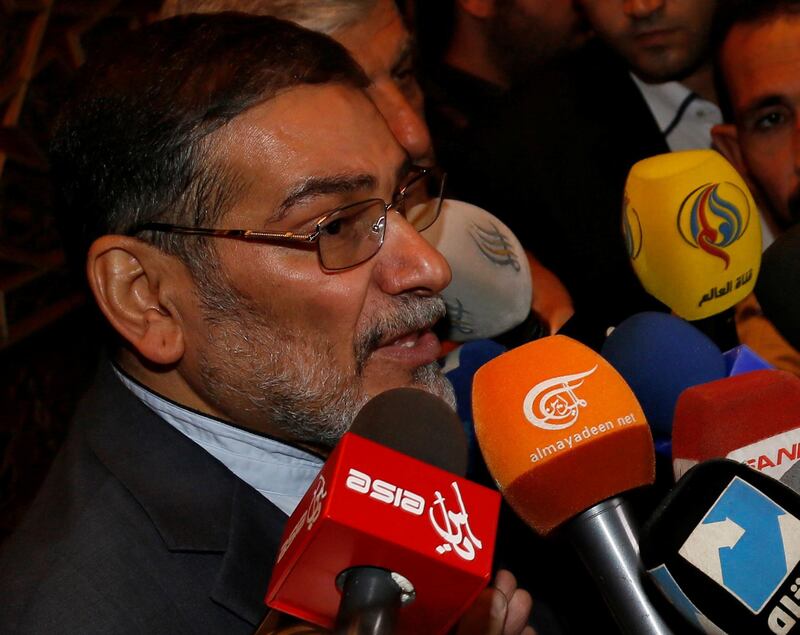Members of the US delegation in Kabul approached senior Iranian officials to negotiate an end to the conflict in Afghanistan, Tehran has said.
The secretary of Iran’s Supreme National Security Council, Ali Shamkhani, was cited by the Iran Revolutionary Guard-aligned Tasnim News Agency as saying: “the Americans have asked me twice for negotiations”.
The US officials reportedly approached Mr Shamkhani when the senior Iranian official was visiting Kabul in December to increase co-operation between the two governments. According to the Iranians, their delegation members had been negotiating with the Taliban, with the knowledge of the Afghan government.
Mr Shamkhani was also quoted as saying the US had failed in its attempts to counter ISIS and restore peace to Afghanistan.
The United States has been leading an international coalition of states fighting the Taliban and supporting the Afghan government since it ousted the Taliban in 2001.
The National contacted the US State Department, but they did not respond to a request for comment at the time of publishing.
It is unclear what the US officials want to negotiate, but Iran has previously been accused of assisting the Taliban.
_______________
[ Taliban blames US and Afghan forces for most civilian casualties in 2018 ]
[ Iran says they held Taliban talks as Afghan peace push continues ]
[ Afghans brace for an even deadlier 2019 as hope for peace fades ]
Saudi Arabia to host third round of Taliban peace talks
_______________
In October, the United States and the Gulf Cooperation Council imposed sanctions on two Iranian Quds Force officers and seven others for providing financial and military support to the group.
“Iran’s provision of military training, financing, and weapons to the Taliban is yet another example of Tehran’s blatant regional meddling and support for terrorism," US Treasury Secretary Steven Mnuchin said at the time.
In November, the US displayed remnants of what it said were Iranian weapons supplied to militants in Afghanistan. Iran denies supplying arms to the Taliban. The US move was designed to pressure Tehran to limit its regional activities.
Tensions between Iran and the US spiked last May when President Donald Trump pulled out of a 2015 nuclear deal with Tehran and reimposed sanctions lifted under the terms of the pact.
Iran has simultaneously claimed it is open to talks, while also rejecting US olive branches, framing each rejection of talks as a rebuke to the re-imposition of sanctions, which are crippling the Iranian economy.
The United States has led two rounds of peace talks with the Taliban, with a third due to take place in Riyadh next month. The talks are aimed at achieving a ceasefire and bringing the Afghan government and the Taliban to the same negotiating table.
But the Taliban have refused to meet with the Afghan government and said they would only talk with the United States, Pakistan, Saudi Arabia and the United Arab Emirates.
The United States might hope to use Tehran to convince the Taliban to meet the internationally recognised Afghan government.
Meanwhile, Afghanistan is going through one of its bloodiest periods since the US invasion, with the Taliban launching armed assaults and suicide attacks on civilians and government buildings across the country.





